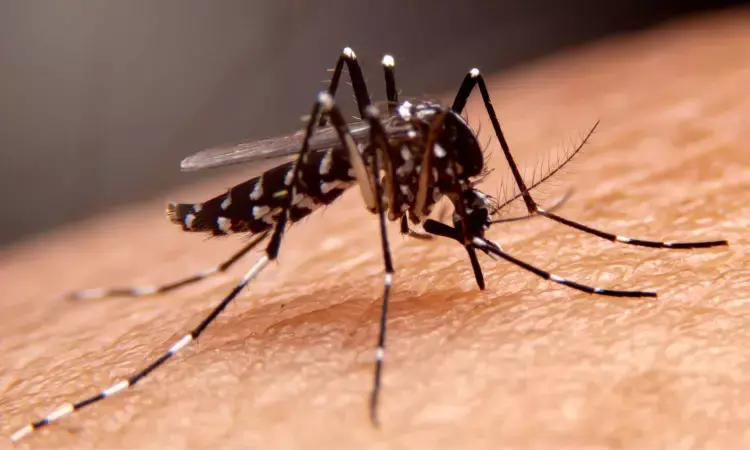- Home
- Medical news & Guidelines
- Anesthesiology
- Cardiology and CTVS
- Critical Care
- Dentistry
- Dermatology
- Diabetes and Endocrinology
- ENT
- Gastroenterology
- Medicine
- Nephrology
- Neurology
- Obstretics-Gynaecology
- Oncology
- Ophthalmology
- Orthopaedics
- Pediatrics-Neonatology
- Psychiatry
- Pulmonology
- Radiology
- Surgery
- Urology
- Laboratory Medicine
- Diet
- Nursing
- Paramedical
- Physiotherapy
- Health news
- Fact Check
- Bone Health Fact Check
- Brain Health Fact Check
- Cancer Related Fact Check
- Child Care Fact Check
- Dental and oral health fact check
- Diabetes and metabolic health fact check
- Diet and Nutrition Fact Check
- Eye and ENT Care Fact Check
- Fitness fact check
- Gut health fact check
- Heart health fact check
- Kidney health fact check
- Medical education fact check
- Men's health fact check
- Respiratory fact check
- Skin and hair care fact check
- Vaccine and Immunization fact check
- Women's health fact check
- AYUSH
- State News
- Andaman and Nicobar Islands
- Andhra Pradesh
- Arunachal Pradesh
- Assam
- Bihar
- Chandigarh
- Chattisgarh
- Dadra and Nagar Haveli
- Daman and Diu
- Delhi
- Goa
- Gujarat
- Haryana
- Himachal Pradesh
- Jammu & Kashmir
- Jharkhand
- Karnataka
- Kerala
- Ladakh
- Lakshadweep
- Madhya Pradesh
- Maharashtra
- Manipur
- Meghalaya
- Mizoram
- Nagaland
- Odisha
- Puducherry
- Punjab
- Rajasthan
- Sikkim
- Tamil Nadu
- Telangana
- Tripura
- Uttar Pradesh
- Uttrakhand
- West Bengal
- Medical Education
- Industry
Monsoon Health: Doctors' Tips on how to prevent diseases

"Presently, individuals are reporting complaints such as gastroenteritis, acute viral hepatitis, and fever, which have emerged over the last 15 days since the onset of the monsoon. While cases of dengue and malaria have not been observed yet due to the early stage of the monsoon, we will probably start seeing such cases in the next two weeks," Dr Vikas Deswal said.
New Delhi: Monsoon calls for fun and thrill but at the same time the risk of infection remains high, so it is necessary to be alert, said doctors who advised taking special precautions during the season.
Dr Rajeev Gupta, Director, of Internal Medicine, Delhi spoke with ANI and said, "I have recently observed an influx of cases involving various infections, such as acute gastroenteritis, dysentery, typhoid fever, leptospirosis, dengue fever, malaria, and cases of electrocution, in the outpatient department (OPD)."
Also Read:Rise in Swine Flu cases: Mumbai private hospitals, labs hike charges of H1N1 tests
Dr Rajeev said, "We have been receiving an average of 10 patients daily since last week. Infections associated with respiratory illnesses, waterborne diseases, and vector-borne infections like dengue and malaria tend to become more common during this season."
Another expert, Dr Vikas Deswal, Senior Consultant, Internal Medicine, Medanta said that currently, the number of cases is relatively low, but we are likely to witness the impact of rain in the upcoming weeks.
"Presently, individuals are reporting complaints such as gastroenteritis, acute viral hepatitis, and fever, which have emerged over the last 15 days since the onset of the monsoon. While cases of dengue and malaria have not been observed yet due to the early stage of the monsoon, we will probably start seeing such cases in the next two weeks," Dr Vikas Deswal said.
Experts said, "Maintaining personal hygiene is of utmost importance, which includes frequently washing hands and refraining from touching the face unnecessarily. And secondly, it is crucial to prevent water stagnation around our living areas, as this discourages the breeding grounds for mosquitoes. By eliminating standing water, we can significantly reduce the risk of mosquito-borne diseases."
Additionally, using mosquito repellents and wearing protective clothing can further minimize the chances of mosquito bites and subsequent infections.
"Thirdly, it is essential to consume clean and hygienic food and water to avoid waterborne illnesses. This can be achieved by ensuring that the food is prepared and stored in a sanitary manner, and by drinking filtered or boiled water," they added.
Meanwhile, it's important to note that infections during the monsoon affect both individuals with a strong immune system and those with compromised immunity.
Hence, everyone should take equal precautions and be cautious about their food and water intake, as these infections are mainly food and waterborne. It is advisable to avoid consuming uncooked foods, chutneys, and salads from outside sources.
Furthermore, it is crucial to be aware that the elderly and children are more susceptible to developing severe diseases, as they can become dehydrated rapidly due to limited reserves during this time.
Following these simple yet effective measures, we can enjoy the monsoon season while maintaining good health and protecting ourselves from infections. Let us all stay safe and healthy during this time," experts added.
Also Read:Actions needed to check spread of Dengue, Malaria: Union Minister tells Delhi CM
Kajal Rajput joined Medical Dialogues as an Correspondent for the Latest Health News Section in 2019. She holds a Bachelor's degree in Arts from University of Delhi. She manly covers all the updates in health news, hospitals, doctors news, government policies and Health Ministry. She can be contacted at editorial@medicaldialogues.in Contact no. 011-43720751


